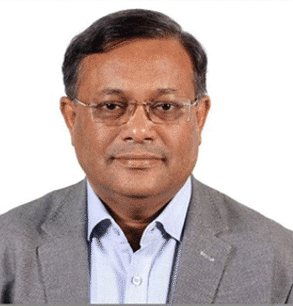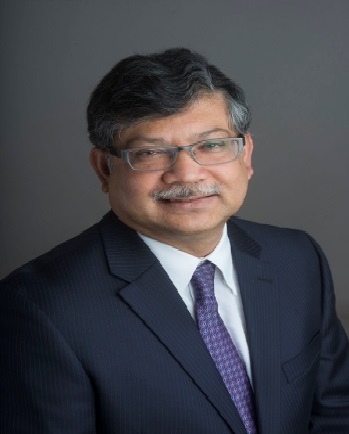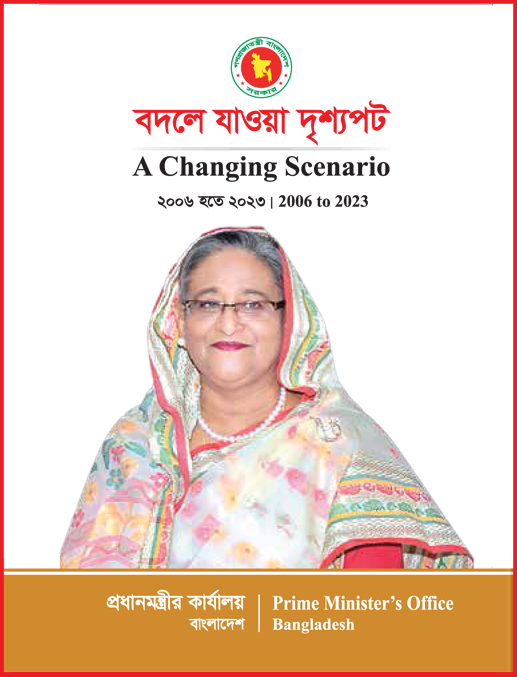Speech by the Hon’ble Foreign Minister for the Bangabandhu Research Centre for Foreign Policy and Diplomacy (Foreign Service Academy) lecture on "Contract Farming and Job Opportunity for Bangladesh Abroad"
Hon’ble Minister for Overseas Employment & Expatriates’ Welfare,
Hon’ble State Minister for Foreign Affairs,
Respected Senior Secretary, Foreign Secretary
Distinguished Ambassadors, Colleagues, Ladies and Gentlemen,
Good Afternoon!
It is my privilege to be here today to inaugurate the first in the series of lectures organized by the Bangabandhu Research Centre for Foreign Policy and Diplomacy, located at the Foreign Service Academy. This is indeed an auspicious occasion and a milestone event marking our institutional approach towards mainstreaming innovation in the policy domain of the government.
At the outset of my comments, I would like to pay my deepest respect to the Father of Nation Bangabandhu Sheikh Mujibur Rahman, who dedicated his entire life to see the smiling faces of our farmers and dreamt of a Sonar Bangla. On this historic occasion of the convergence of the birth centenary of the Father of Nation and the golden jubilee of our independence, I convey my heartiest felicitations to everyone present here and to all my compatriots.
Ladies and Gentlemen,
Under the visionary leadership of the Hon’ble Prime Minister Sheikh Hasina, Bangladesh has come a very long way since independence in 1971. Father of the Nation, Bangabandhu Sheikh Mujibur Rahman inherited a country with nothing but scorched earth. Not even a single telephone tower was standing on the 16th of December 1971 and the country was faced with dire shortage of everything essential for the very survival of its 75 million people and families with 3 million dead and two hundred thousand tortured women. Not to mention, Bangabandhu himself, along with the members of his family was assassinated in 1975; and what followed next was a continuation of rule par force and by cronyism. From such a dark background - Bangladesh has reemerged like the mythical phoenix from its sheer ashes.
Over the last decade, our economy has grown with an average of 8.15% and we were crossed the 8% -mark in the fiscal year preceding the pandemic. Even in the year of the COVID19, our growth hovered around . According to the Center For Economics & Banking Research, a London based think-tank, Bangladesh is expected to be the 25th largest economy in the world by 2030 with a GDP of USD 1.2 trillion.
Agriculture has always been at the core of the Political-Economy manifesto of the Awami League Government led by the Hon’ble Prime Minister Sheikh Hasina, the able daughter of the Father of Nation. One of the key priorities which propelled the Father of the Nation to conceptualize the vision of an independent Bangladesh was to ensure both the market and a fair price for the farming communities of Bangladesh. The priority remained and evolved manifold into national level acceleration with the agricultural sector receiving the highest allocation from the fiscal and monetary packages. Agricultural sector innovation, mechanism, extension and marketing received due import under the astute leadership of the Hon’ble Prime Minister Sheikh Hasina.
Much of Bangladesh’s development draws on the back of a robust local economy, thanks to the transforming agriculture particularly in the input sector. Agricultural innovation, led by small and marginal farmers has been key to success in the enhanced production of agricultural commodities and services. I take this opportunity to pay homage to our scientific community in the agriculture sector who has revolutionized our agriculture through their innovation and creative solutions and made a tremendous contribution to our food autarky.
In the recent years, the government started actively considering expanding into markets abroad for participating in both global production and supply chain ecosystems.
Utilizing the various bilateral and multilateral channels, Bangladesh started actively considering various farming options in the Middle East and in the greater African landscape. We believe that sustainable agriculture does not only ensure the survival of our nation – it also opens the doors to prosperity, exchange and expansion of our national footprint across the globe.
Ladies and Gentlemen,
It has been almost a decade that the Government of Bangladesh commenced initiatives for leasing agricultural land in Africa. A Fact-Finding Mission from the Ministry of Foreign Affairs led by the then Foreign Secretary visited Ivory Coast, Latvia, Senegal and Ghana in 2010 to explore possibilities of contract farming in African countries. The Fact-Finding Mission found that the production of rice, wheat, cotton, coffee etc. would be feasible and profitable for our investors in those countries.
Bangladesh initiated ‘Contract Farming’ in the African countries with appointment of 11 Bangladeshi farmers in Zambia in 2016. A Bangladeshi company ‘Bhati Bangla Agritech’ received clearance of the Government there to appoint 11 Bangladeshi farmers in agricultural projects of that African country. Nitol-Niloy Group and Bhati Bangla Agritech Ltd had been working in some other African countries cultivating food grains.
Bangladesh Ambassador in Kenya reported that Kenyan authorities were interested to provide about 1000 acres of land on lease to a financially competent Bangladeshi company for cotton cultivation. In Sudan, there is an area of 20 million hectors of land of which 40% are agricultural land. Bangladesh agricultural scientists may introduce suitable agricultural methods in Sudan. The Sudanese side has sought co-operation of Bangladesh for fabrication of fishing boats for catching fish in the Red Sea.
I know that countries like Gambia, Sierra Leone, and the stretches of both the Maghreb and the Sub-Saharan Africa might be fertile areas to explore possibilities in this regard.
Ladies and Gentlemen,
The OIC is a good platform to leverage our access the heart of Africa.
The Islamic Organization for Food Security (IOFS) is one such organization which we are actively contemplating to work with. Bangladesh signed the statute in 2016 and was elected as member of the executive committee for 3 years from Asia group. Bangladesh through the platform of IOFS can take some projects in African region for cultivating crops and agricultural products.
Islamic Food Processing Association (IFPA) is another multilateral body which we could leverage. Established in Uganda in 2011, IFPA could channelize intra-OIC investment in agro-food processing sector as well as creating a dedicated fund for agro-industrial development within the existing IsDB funding windows for agricultural development.
May be we could find interested host bodies to help small and medium-sized agro-food producers to penetrate international markets and assist farmers through development and dissemination of plant genetic resources for food and agriculture quality, input supply, farm organization and management, post-harvest handling, provision of technologies of production and handling, grading criteria and facilities, cooling and packaging technologies, storage, transport, finance, and feedback from markets.
Ladies and Gentlemen,
This is the Mujib Borsho – the year of the Birth Centenary of the Father of the Nation Bangabandhu Sheikh Mujibur Rahman. We are also fast approaching the Golden Jubilee celebrations of Freedom and Liberty. Let us make this cusp of time auspicious for the many millions we serve as Foreign Service!
We have an able and extraordinary ambassador here. Ambassador Golam Mosih. His track record is impeccable. He has networks and he knows how to leverage those networks for attaining the priorities of the Government. Today, we will listen to his lecture about how we may take advantage of the African contract-farming space.
I look forward to listening to his ideas and then discuss more.
Joi Bangla, Joi Bangabandhu.













